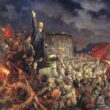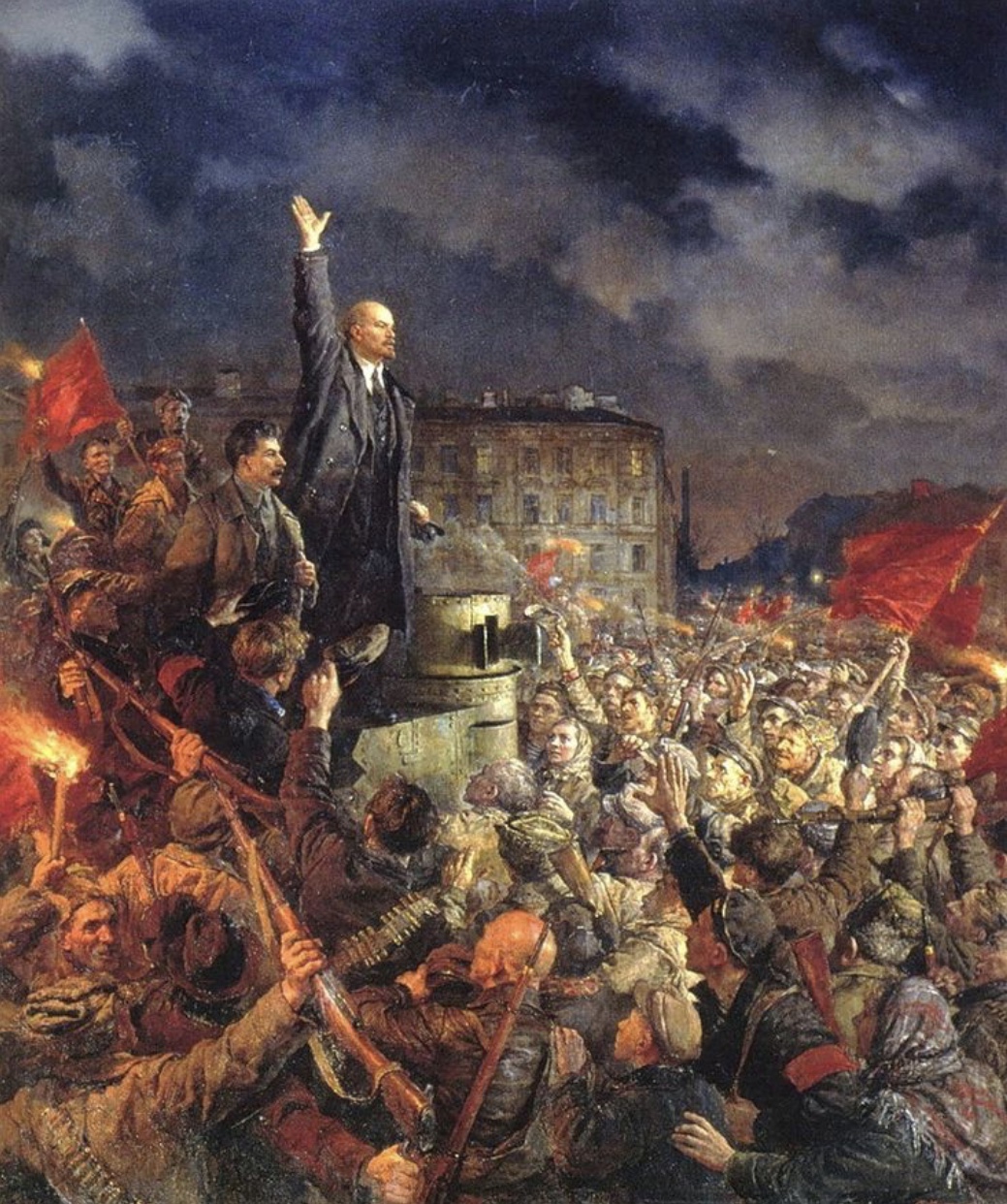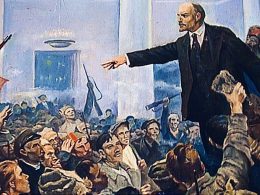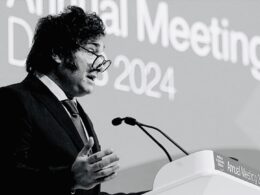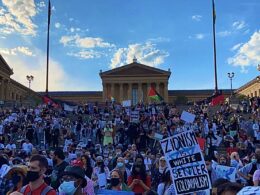Until we solve the question of organization, our efforts to fight the imperial state will remain inadequate, and our movements will stay stuck in their present cycle of self-defeat. We’ll see more incidents like this last week’s attack on Zionist entity representatives at a DC museum, where the shooter made it clear he’d turned to individual violence in response to the ongoing Palestinian genocide. We’ll also see the most reactionary political forces fill the vacuum which our lack of organization is causing, where millions of people desire radical change but can’t find a viable avenue for exacting that change.
This is the kind of environment where Nazism can gain a foothold, and there’s abundant evidence that the deep state is boosting Nazi propaganda right now through its big tech algorithms. There is a concerted effort to keep those with revolutionary potential demobilized, and thereby allow far-right controlled opposition elements to rise.
To defeat this mass manipulation effort, we must recognize the difference between mobilization and organization. Without real organizing, where you build a collective structure that’s sustainable and acts as a foundation for mass struggles, any mobilization you do will be without a real direction or a clear purpose. All of the established U.S. left orgs operate by tailing after the spontaneous outbreaks of mobilization, and by trying to carve out spheres of influence within the protest cage; which is a core reason why these orgs have failed to build a movement which can stop the Palestinian holocaust.
Many of today’s U.S. communists, including myself, have gone down a path of first entering into these left orgs and then becoming disillusioned with them. In these last couple years, as it’s become clearer than ever that the left has failed our popular struggles, this migration away from the old “pan-leftist” sphere has sped up. And we can expect more former pan-leftists to undergo this process, where one comes to see the self-defeating nature of petty-bourgeois radicalism. What I’ve needed to consider throughout my journey out of this sphere, though, is that I still got the original parts of my political training from petty-bourgeois radicals. That in my first few years as a communist, the only “organizing” I knew was one where you go through a standard mobilization routine, with any deeper community work that you may do being incidental.
That my experience represents the norm is an indication of how much the social movements in this country have been dismantled. When there hasn’t been a real left for decades, as a communist you’re either going to get picked up by one of the petty-bourgeois radical outfits, or operate exclusively in the realm of online politics.
This sounds bleak, and it is, but it’s really a modern version of the crisis that Russia’s communists needed to escape during one stage of their struggle. As Lenin wrote about this crisis in 1899: “Here we come to the most urgent question of our movement, to its sore point—organisation. The improvement of revolutionary organisation and discipline, the perfection of our underground technique are an absolute necessity. We must openly admit that in this respect we are lagging behind the old Russian revolutionary parties and must bend all our efforts to overtake and surpass them.”
There are ideological forces, including ones inside the “anti-establishment” sphere, that seek to encourage apathy in the face of our organizational problems. That look at the inadequacies of our movements in the present stage, and conclude the right response is to give up even on trying to mobilize the masses. This is the idea that’s being put forth, whether explicitly or not, by the bulk of today’s “alt” media. I say this on the basis that most alt media sources, especially the ones that get boosted by the algorithms, are not operating with a class analysis; many of them are centered around advancing a business model, and there’s a growing element within alt media that’s tied to the Nick Fuentes Hitlerite agenda.
When the left has failed, and we haven’t yet built enough of an alternative to it, such lethargic or hate-fueled mindsets are going to dominate. That the new iteration of the far right is more terminally online than any past one, and rejects the concept of organizing, isn’t a coincidence; our ruling class is trying to capture the most disillusioned parts of the masses, and funnel them into ideologies that actively discourage involving oneself in real life. This is why we can expect the far right to be boosted even more, especially as Americans get burned out from the currently dominant alt media commentators. The plan is to switch over to a new form of controlled opposition, one that’s centered around the “Jewish question” narrative.
I’ve made the observation that when our ideological antagonists have rejected organizing, we’ll have a major advantage over them if we do this kind of work ourselves. I’ve also advocated for creating structures that function underground, and that can keep operating even if our work becomes illegalized. What the developments of this last week have shown me, though, is that we’ll only succeed when we’ve fully and truly broken from the terminally online ways of operating.
When somebody’s framework for interpreting events comes from internet politics, this will make them run up against the goal of organization-building. And we’ve seen examples of this with many of the reactions towards the DC shooting. One problematic response has been to hastily conclude that it was a false flag, despite all the evidence that Elias Rodriguez (the man who’s claimed responsibility for the act) is in fact a true supporter of Palestine. The knee-jerk “false flag” response takes away from the reality of this situation, this being that the established left orgs have failed and people are seeking out alternative methods of resistance. When somebody’s first impulse is to treat events as if they’re staged, even when these events stem from important material factors, the effect this has is to keep the movement trapped within the sphere of online spectatorship.
Another counterproductive reaction has been to say that the PSL orchestrated the shooting, based on how Rodriguez had cycled in and out of the PSL’s circles in 2017. This idea hurts serious efforts to hold the PSL accountable for what it’s actually done, that being to keep the movement stagnant. It’s because PSL and the other established left orgs refused to build a real mass movement that Rodriguez was sent down this path. To divert the discourse towards the most demonizing depictions of PSL not only reinforces the narratives the state is trying to promote about the attack; it also lets non-PSL communists evade responsibility for constructing an organization of our own.
The correct stance to take on this is the one that’s been articulated by ACP chairman Haz Al-Din, who’s said: “If the state tries to crack down and persecute PSL, my comrades and I will be the first to defend them as we would any American whose rights are violated – even though they would not do the same for us. It’s because despite how much they attack us, we remain principled.”
Only with a materialist analysis can we take the right lessons from moments like this one, or practice the solidarity that the chairman advocates for. And without the ability to learn these lessons, or the will to be principled in opposing state repression, we’ll undermine our own organizing efforts.
We who’ve escaped petty-bourgeois radicalism have come far on our personal revolutionary journeys, but we must remain vigilant of any remaining habits that could ruin us. It is necessary to critique PSL and the other petty-bourgeois radical orgs, at least where this criticism is based in fact. But at this stage, when these orgs have been de-boosted by our ruling class and are soon to be met with great repression, what we need to focus on more is self-criticism. What may be holding us back? What do we still have to improve in our practice? If we investigate these questions, we’ll be in place to build the institutions that the masses need.
————————————————————————
If you appreciate my work, I hope you become a one-time or regular donor to my Patreon account. Like most of us, I’m feeling the economic pressures amid late-stage capitalism, and I need money to keep fighting for a new system that works for all of us. Go to my Patreon here.
To keep this platform effective amid the censorship against dissenting voices, join my Telegram channel.
